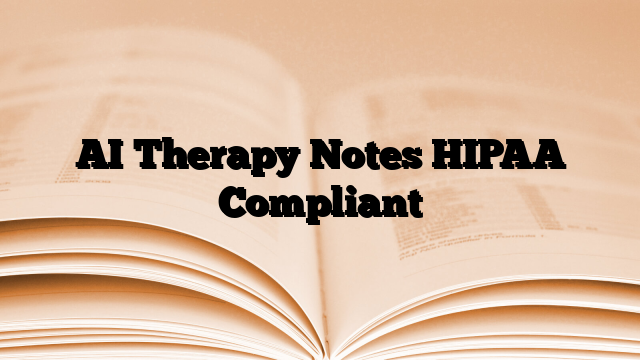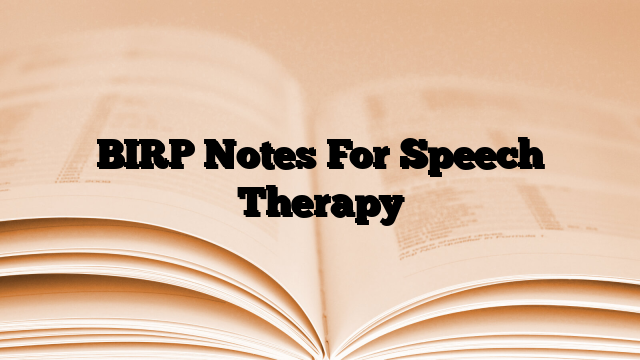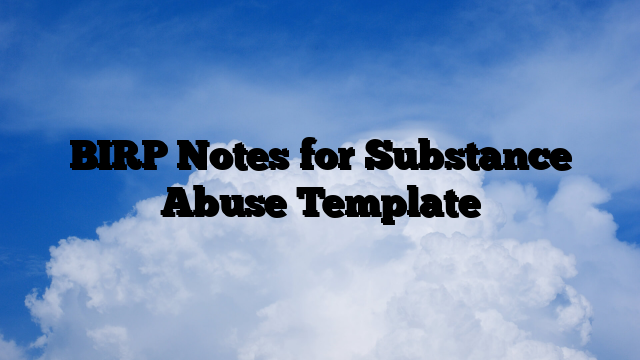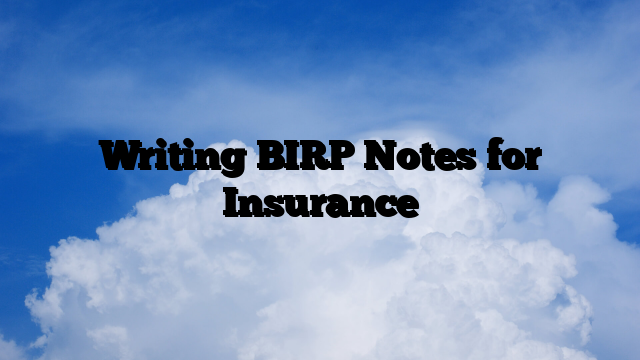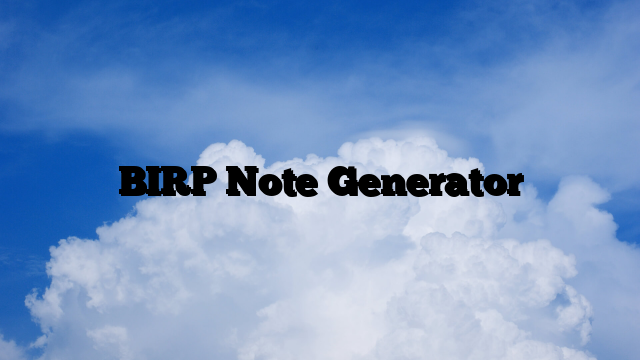Can AI Therapy Notes be HIPAA Compliant?
As more therapists turn to artificial intelligence (AI) to help with documentation, one big question comes up: Can AI-generated therapy notes be HIPAA compliant?
The short answer is: Yes, AI therapy notes can be HIPAA compliant if the AI platform follows necessary security measures like data encryption, access controls, and retains signed Business Associate Agreements (BAAs) with healthcare providers. It must also ensure accurate, confidential handling of client data with proper protocols for retention and deletion, meeting all HIPAA requirements for safeguarding sensitive information.
In this blog, we’ll break down what HIPAA compliance means, how AI therapy notes work, and what to look for to make sure your AI tool keeps your clients’ information safe.
So What is HIPAA?
HIPAA stands for the Health Insurance Portability and Accountability Act. It’s a U.S. law that protects clients’ health information, often called PHI (Protected Health Information). HIPAA requires anyone handling PHI, like therapists and healthcare providers, to:
- Keep client information private and secure
- Use encrypted and safe systems for storing and sharing data
- Sign Business Associate Agreements (BAAs) with any software or service provider that handles PHI
What Are AI Therapy Notes?
AI therapy notes are progress notes generated with the help of artificial intelligence. These tools can speed up documentation by turning short summaries, voice recordings, or session outlines into complete clinical notes. Many AI note tools can create SOAP, DAP, BIRP, or custom formats.
While this sounds great for saving time, it raises an important concern: Is the AI tool handling private health data in a safe and legal way?
What makes AI-generated notes potentially HIPAA compliant?
Here are the key factors that make AI-generated notes potentially HIPAA-compliant:
A Secure Infrastructure and Data Storage:
To ensure compliance, AI platforms must use secure infrastructure for storing and transmitting data. This includes using strong encryption methods both in transit (when data is being transferred) and at rest (when data is stored). Secure servers, cloud platforms, and access controls must be in place to protect the data from unauthorized access or breaches, ensuring it meets HIPAA’s privacy and security standards.
Policies and Training:
AI platforms must be equipped with clear policies and procedures for handling sensitive client data. This includes training for those using the platform on HIPAA compliance requirements. Employees of AI service providers, as well as healthcare professionals using the system, must be trained to properly use the AI tool in a way that ensures the data is handled securely, preventing any potential misuse or violations of HIPAA rules.
Anonymization/De-identification:
AI-generated notes can be HIPAA-compliant if client data is de-identified or anonymized before processing. This means removing any personally identifiable information (PII) that could link the data back to a specific individual. By stripping away sensitive identifiers, AI tools can process the information without violating client confidentiality, which is a key requirement under HIPAA.
The Business Associate Agreements (BAAs):
HIPAA mandates that healthcare providers must have a Business Associate Agreement (BAA) with any third-party vendor who handles client data. For AI-generated therapy notes, this means the AI service provider must sign a BAA with the therapist or healthcare provider, acknowledging their responsibility to protect the data and comply with HIPAA regulations. This contract ensures that both parties understand their obligations regarding data protection.
Factors to Consider for HIPAA Compliance
To ensure AI-generated therapy notes are HIPAA-compliant, several factors need to be considered to protect client data and maintain privacy. These include:
Data Security:
Robust data security measures are essential for HIPAA compliance. AI platforms must implement encryption, access controls, secure servers, and continuous monitoring to protect client information from unauthorized access, breaches, or leaks. This ensures that the data is handled securely both during processing and storage, aligning with HIPAA’s security requirements.
AI Model Training:
The AI model used for generating therapy notes must be trained on data that complies with HIPAA standards. This means ensuring that the data used for training does not contain any personal identifiers or confidential client information unless it’s properly de-identified. Proper training helps the AI understand the sensitive nature of healthcare data and generate notes that meet regulatory standards.
User Input:
Therapists and healthcare providers must input accurate and appropriate data into the AI system for it to generate compliant notes. AI tools can only maintain compliance if they are used properly, meaning providers must follow best practices and ensure the data they enter is precise and complete. Misleading or incomplete input can compromise the accuracy and compliance of the generated notes.
Data Integrity:
Data integrity ensures that AI-generated therapy notes are accurate and reliable. The AI system must produce consistent and correct outputs based on the input it receives. HIPAA compliance requires that any notes generated accurately reflect the client’s information, assessments, and treatment plans without errors, ensuring trust and clarity in the healthcare process.
Common HIPAA Risks with AI Notes
Some AI tools use free or public models like ChatGPT, Google Docs plugins, or browser extensions. These tools are not HIPAA compliant unless they have extra security features and a signed BAA.
Never ever copy and paste real client details into a tool that doesn’t clearly guarantee HIPAA compliance.
Examples of AI Therapy Note Tools That Are 100% HIPAA Compliant
Below are examples of AI tools that ensure your client data remains private, secure, and handled with the highest professional standards.
Mentalyc: The Leading HIPAA-Compliant AI Note-Taking Tool
Fully HIPAA Compliant: Mentalyc is “100% HIPAA Compliant.” This includes not only signing BAAs but also ensuring end-to-end encryption and secure cloud storage. The platform adheres to stringent compliance standards, offering peace of mind to therapists and mental health organizations alike.
Multiple Input Modes: Mentalyc is designed to accommodate diverse clinical workflows. You can record a session, dictate your notes, or upload an audio/text file. Its AI engine processes these inputs and converts them into structured formats such as SOAP, DAP, or BIRP notes, saving you significant time on documentation.
Secure Handling of PHI: A standout feature is its approach to PHI (Protected Health Information). Mentalyc does not store any PHI in its transcripts. Instead, it anonymizes data by generalizing any proper nouns, ensuring even more privacy than traditional methods.
Enterprise-Level Security: Mentalyc doesn’t just rely on basic data protection. It employs high-level encryption, secure authentication protocols, and retention controls. The platform is also SOC 2 Type II compliant, making it one of the most secure options available.
Customizable and EHR-Integrated: The tool adapts to your preferred clinical language, whether you use “therapist,” “counselor,” or “clinician” and allows for seamless export into EHR systems. This customization helps ensure that your notes feel like your notes, not generic outputs.
Efficiency That Matters: Therapists using Mentalyc report drastic time savings, going from 15 minutes per note to just about 1 minute. This efficiency has enabled many to increase their client capacity by up to 25%, improving both practice productivity and client access.
Other AI Therapy Note Tools with HIPAA Compliance
While Mentalyc sets a high standard, other AI-powered tools also offer HIPAA-compliant note-taking features:
Upheal: Provides AI-powered therapy notes and analytics with HIPAA compliance. Pricing starts around $49/month. It offers a clean interface and a focus on actionable insights but may not match Mentalyc’s depth in psychotherapy-specific features.
Blueprint: Goes beyond note-taking by offering session preparation and post-session insights. Priced at approximately $129/month, it’s suited for clinicians looking for more comprehensive client tracking, though it comes at a premium.
Why Mentalyc Stands Out Among the Rest
What truly sets Mentalyc apart is its purpose-built focus on mental health professionals. Unlike many generic medical scribes or general AI tools, Mentalyc is designed specifically for therapy workflows.
- You’re not forced to record every client; choose the input method that best fits your session.
- Its note templates are flexible, reflecting your unique therapeutic language and preferences.
- Mentalyc takes security seriously, with generalization of PHI, encrypted storage, and audit trails.
- Most importantly, it’s clinician-tested, real therapists report actual workflow improvements and increased client capacity, proving its practical value in everyday use.
The Bottom Line:
AI therapy notes can absolutely be HIPAA compliant, if you pick the right tool. As a therapist, your responsibility is to protect your clients’ privacy. Always double-check a platform’s compliance features and don’t use AI tools casually for clinical documentation unless they meet HIPAA standards.
With the right setup, AI can make your note-taking faster, easier, and still safe.
Frequently Asked Questions:
Are AI notes HIPAA compliant?
Yes, AI notes can be HIPAA compliant if the right security measures are in place. These measures include data encryption, secure storage, de-identification of patient information, and proper access controls. The AI platform must also have a Business Associate Agreement (BAA) with healthcare providers, ensuring both parties comply with HIPAA standards for protecting patient data. However, it’s important to ensure the AI system is used correctly and meets all privacy and security requirements.
Can therapists use AI for notes?
Yes, therapists can use AI for notes, as long as the AI tool is HIPAA-compliant and meets privacy and security standards. AI can help therapists generate accurate, time-saving notes by automating the process, but it’s crucial to use a platform that ensures patient confidentiality, data encryption, and proper access controls. Therapists should also ensure the AI-generated notes are reviewed for accuracy and consistency with treatment plans.
Are Psychotherapy Notes covered under HIPAA?
Yes, Psychotherapy Notes are covered under HIPAA. According to HIPAA regulations, psychotherapy notes are considered a special category of protected health information (PHI) and are subject to stricter privacy protections. These notes include detailed records of therapy sessions, such as the therapist’s observations, thoughts, and treatment plans. They cannot be disclosed without the patient’s explicit consent, except in certain legal or emergency situations. These extra protections ensure the confidentiality and privacy of sensitive therapeutic information.
What is the best AI tool for TherapyNotes?
The best AI tool for TherapyNotes is Mentalyc. It offers automated, HIPAA-compliant therapy notes, customizable templates, and integrates seamlessly with other therapy tools.
Can you use ChatGPT to write therapy notes?
No, ChatGPT cannot be used to write therapy notes in a compliant and secure manner. While it can assist with drafting text, it does not ensure HIPAA compliance, which is crucial for handling sensitive patient information. ChatGPT lacks necessary security measures, like data encryption, and does not have the ability to sign Business Associate Agreements (BAAs) with healthcare providers. Additionally, it doesn’t have built-in features for data protection, audit trails, or de-identification of patient data, which are required by HIPAA for handling therapy notes.
Is it ethical to use AI to write therapy notes?
Yes, It is ethical to use AI to write therapy notes only if the AI tool is fully HIPAA-compliant and the output is high quality and accurate. The tool must ensure data privacy, security, and confidentiality, with proper encryption, access controls, and a signed Business Associate Agreement (BAA) to meet HIPAA standards. Additionally, the AI-generated notes must be reviewed and validated by the therapist to ensure they are an accurate and true reflection of the patient’s progress and treatment. Using AI in an unethical manner, such as using non-compliant tools or relying on inaccurate notes, would violate ethical standards and potentially harm patients’ privacy and care.
Is ChatGPT HIPAA compliant?
No, ChatGPT is not HIPAA-compliant. OpenAI’s ChatGPT does not meet the stringent requirements set by the Health Insurance Portability and Accountability Act (HIPAA) for handling Protected Health Information (PHI). Once you input data into ChatGPT, it is processed on OpenAI’s servers, which are not HIPAA-compliant. This means that any PHI entered could be exposed to unauthorized access, potentially violating HIPAA regulations.
Does ChatGPT violate HIPAA?
Yes, ChatGPT can violate HIPAA if it processes Protected Health Information (PHI). ChatGPT is not designed to meet the strict requirements of HIPAA, which include data encryption, access control, and audit trails to protect patient privacy. If sensitive health information is shared with ChatGPT, it may not be secure or compliant with HIPAA regulations. Additionally, OpenAI’s terms of service allow for data usage for model improvement, which further raises concerns about the confidentiality of PHI.
Therefore, it’s essential to avoid inputting any PHI into ChatGPT if HIPAA compliance is required. For processing sensitive healthcare data, using AI tools specifically designed for HIPAA compliance is crucial.
